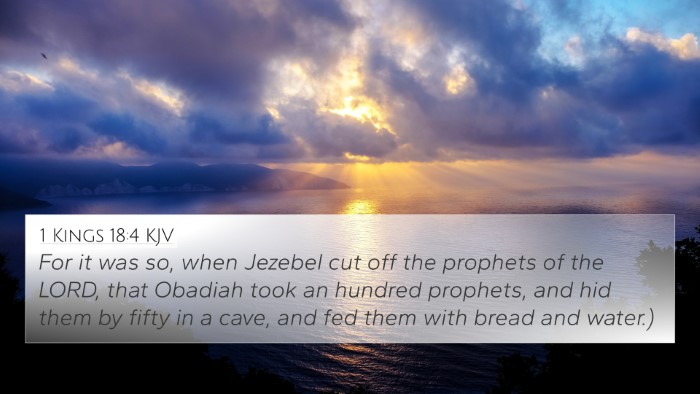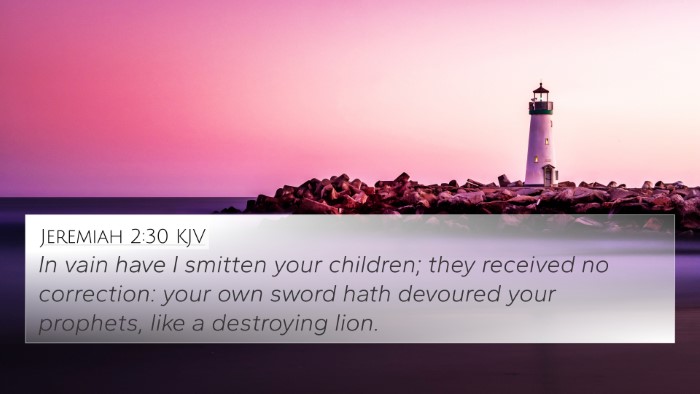Understanding Romans 11:3
Introduction: Romans 11:3 addresses God's response to the spiritual condition of Israel during the time of Paul. This verse is pivotal for understanding the themes of divine sovereignty, judgment, and mercy in both the Old and New Testaments. Various commentaries provide insights on this verse, connecting it to broader Biblical themes.
Verse Context
Romans 11:3 states: "Lord, they have killed Your prophets, and torn down Your altars; and I alone am left, and they seek my life." This verse reflects the prophet Elijah's lament to God, which serves to illustrate Israel's unfaithfulness and God's enduring grace.
Commentary Insights
-
Matthew Henry:
Henry observes that Elijah felt isolated and despairing due to the widespread apostasy of Israel. This reflects a thematic connection to the remnant concept where God preserves a faithful few despite national rejection.
-
Albert Barnes:
Barnes emphasizes the historical significance of the prophet’s plea. He highlights that although the majority rejected God's prophets, there remains a hope in God's promise to preserve a remnant.
-
Adam Clarke:
Clarke discusses the implications of feeling alone in faith and the encouragement that comes from recognizing God's sovereign role in sustaining believers through trials. He elaborates on how God's purposes are not thwarted by human rebellion.
Thematic Connections
Romans 11:3 serves as a significant link within the context of Scripture regarding the themes of:
- Judgment and Mercy: The juxtaposition of God's impending judgment on unfaithful Israel with His promise of mercy to a faithful remnant.
- The Remnant: Scriptural references such as Isaiah 10:20-22 and Micah 2:12 depict God preserving a small group amid widespread rebellion.
- Faithfulness in Crisis: This theme resonates through passages such as 1 Kings 19:10 and 1 Peter 4:12-13, reflecting that believers may feel isolated yet are part of God's larger plan.
Cross-References
Additionally, several Bible verses relate to Romans 11:3, enhancing the understanding of spiritual isolation and God's faithfulness:
- 1 Kings 19:10 - Elijah's lament and God's encouragement.
- Isaiah 1:9 - The concept of a remnant of faithful people.
- Isaiah 10:20-22 - A promise for the remnant of Israel during judgment.
- Matthew 7:14 - The narrow path taken by the few who find life.
- Revelation 3:4 - The faithful remnant within the church of Sardis.
- Romans 9:27 - Paul references Isaiah to indicate the remnant saved according to grace.
- Hebrews 11:32-40 - The faithful who may not receive immediate reward for their faithfulness in the face of trials.
Applications for Study
For those interested in Bible verse cross-references and thematic connections, understanding Romans 11:3 is pivotal. Here are some practical tools for enhancing your Bible study:
- Bible Concordance: Utilize this resource to find verses related to the theme of remnant and faithfulness.
- Bible Cross-Reference Guide: Cross-reference Romans 11:3 with related verses for a deeper understanding.
- Cohesive Study Methods: Engage in cross-referencing Bible study methods by comparing Romans with other Pauline writings.
- Inter-Biblical Dialogue: Explore connections between the Old Testament prophets and New Testament teachings on faith and perseverance.
Conclusion
In summary, Romans 11:3 presents a profound plea illustrating the tension between divine judgment and mercy. The commentaries of Matthew Henry, Albert Barnes, and Adam Clarke enrich our understanding of this verse's significance within the broader narrative of Scripture. By utilizing tools for Bible cross-referencing, believers can discover deeper thematic connections and pursue a more meaningful relationship with God's Word.








